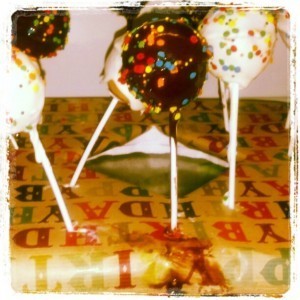why 40 is not the new 30 ( + ‘weird’ is good for your soul)
You were wild once. Don’t let them tame you. — Isadora Duncan

When someone found out that my 40th birthday is almost upon me, she chirped, “Don’t worry – 40 is the new 30!”
Although I don’t remember what I said in response, I remember what I thought:
I don’t want 40 to be the new 30.
I’ve already been 30. I felt like a student who handed in a good paper and wants credit for her work.
I wasn’t sure why I felt this. It’s not like I want to get older and die. It’s not like I enjoy this growing awareness of my own freaking mortality. It’s not like I am displeased when people tell me – as they have since I was 19 or so – that I look younger than my age (thank you, excessive facial baby fat).
Then I came across some information about the word ‘weird’.
Weird, or wyrrd, as the mythologist Michael Meade explains in his book FATE AND DESTINY, comes from old roots that include the German werden, meaning “to become, to grow.” We are each born with a unique mix of limitations, gifts and potential – fate (the cards we are born with) and destiny (the story in the soul we are meant to live out) – that
“taken together comprise that which is truly weird and inherently unique about us.”
It’s our weirdness – our uniqueness – that enables us to be remarkable, to shine, to create a kind of value in the world that can’t be dismissed, ignored, imitated or replaced. The word ‘destiny’ can mean ‘to stand out, to stand apart’, especially when it involves the revelation or demonstration of one’s inner genius. So it’s by developing our weirdness that we find our true destiny. Our unique point of awesomeness. Our superpower. Our special sauce.
Or not.
Because, as it happens, no one is born into this world with a set of instructions that neatly dictates what our gifts are and how best to use them. Maybe we sense, deep down, the story that we are meant to live out — the purpose and meaning of our own individual existence – but we don’t exactly know what it is, and there isn’t anybody who appears on our doorstep to tell us.
All we can do is explore the world, each other, and the nature of our own experience.
All we can do is pay attention to the things that come up for us in the twists and turns of the living narrative that is our life, in the
“fateful issues and darkest areas that most of us try to avoid, outwit, or outrun.”
Life has a way of forcing us into events that we would never in a million freaking years choose to live out on our own. It’s those nights of the soul that show us who we are – and who we can be, if we choose to walk into our own potential (across that broken glass, those burning coals).
We are forged in fire and conflict (which is why ‘conflict, conflict, conflict’ is the first rule of writing fiction).
Wisdom, as Meade points out, involves “a darker knowledge of life as well as ways of finding uncommon illumination.”
I realized that it was the ‘darker knowledge’ I wanted to protect. It is that deepening ownership of my proud weird self. Claiming that ’40 is the new 30’ felt like a dismissal of everything I’ve come through in the last ten years, including the death of my infant son and my divorce. Those things are part of me now. They are my broken places.
And I am stronger for them — and weirder, and more unique, for the ways this life has knit me back together.
At 40, I’ve got more goddamn soul.
To learn your destiny is to know who you are (and vice versa). To fail at this is to live out a secondhand existence. To consume your life instead of create it.
Someone recently observed in the comments section that so many of us don’t know who we are. When 40 is the new 30, when we try to age backwards, is that really such a surprise?








